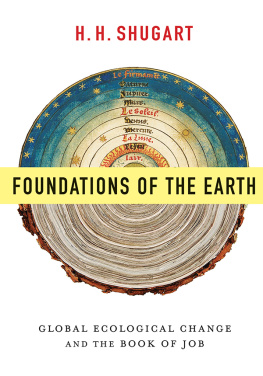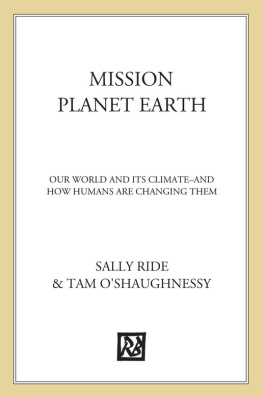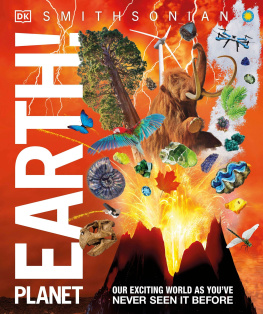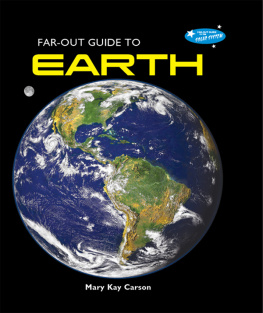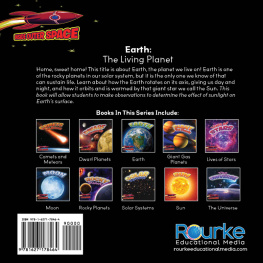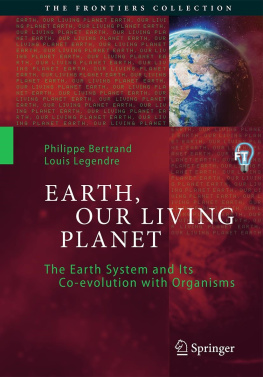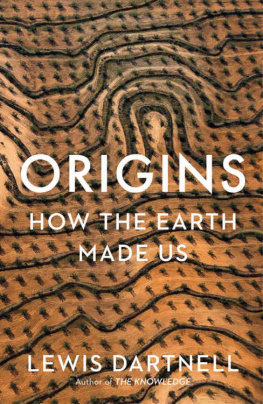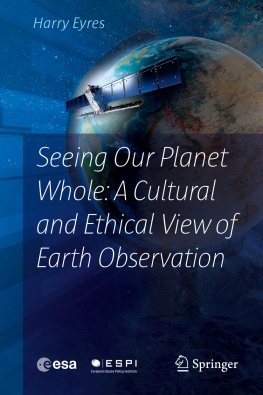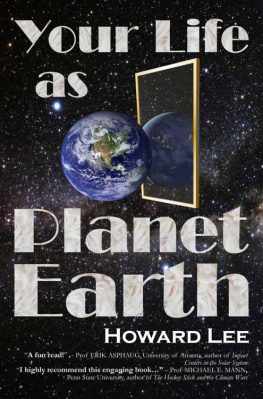FOUNDATIONS OF THE EARTH
Foundations of the Earth
Global Ecological Change and the Book of Job
H. H. Shugart
COLUMBIA UNIVERSITY PRESS
NEW YORK
Columbia University Press
Publishers Since 1893
New York Chichester, West Sussex
cup.columbia.edu
Copyright 2014 H. H. Shugart
All rights reserved
E-ISBN 978-0-231-53769-8
Library of Congress Cataloging-in-Publication Data
Shugart, Herman H. (Herman Henry), 1944
Foundations of the earth : global ecological change and the book of Job / H. H. Shugart.
pages cm
Includes bibliographical references and index.
ISBN 978-0-231-16908-0 (cloth : alk. paper) ISBN 978-0-231-53769-8 (e-book)
1. Human ecologyReligious aspects. 2. Environmental degradationReligious aspects. 3. Natural historyReligious aspects. 4. Religion and science. 5. Bible. JobCriticism, interpretation, etc. I. Title.
GF80.S348 2014
304.2dc23 2013045871
A Columbia University Press E-book.
CUP would be pleased to hear about your reading experience with this e-book at .
Jacket design: Noah Arlow
References to websites (URLs) were accurate at the time of writing. Neither the author nor Columbia University Press is responsible for URLs that may have expired or changed since the manuscript was prepared.
Contents
Foundations of the Earth intends to demonstrate the intrinsic connectedness of the Earths systems, their dynamic change, and their interactions with humans. The book emphasizes environmental synthesis at large scalesregional to global scales in space, centuries to millennia to even longer scales in time. The issues in the chapters, all on our changing and human-altered planet, are interwoven. The overarching themes involve planetary complexity, connectedness, and dynamism. These are large themes for a small book, and the diversity of disciplines considered is substantial. The mutual interactions among different Earth systems provide a unity to the text.
The book uses a set of questions from a small section of the Book of Job as an overarching theme to provide additional connectedness. These biblical questions frame chapter discussions on such topics as, Where did the solar system come from? How were animals domesticated? How do changes in the greenhouse gases in the atmosphere imply global warming? How does climate and its change alter the worlds vegetation and vice versa? The intention here is neither to substantiate the questions, which coalesce into a creation account starting in the thirty-eighth chapter of Job. Nor is the intent to reconcile the Bible with science somehow. Rabbi Shelomo Ben Isaac, or Rashi (France, 10401105 CE), distinguished what a biblical text says from what it means and separated the literal translation from traditional interpretation.translation from a standard source (the New Revised Standard Version of the Bible) and largely interprets what it means as if it were a direct question to a scientist.
The verses starting with Job 38 through the first part of Job 42 are a composite of divine questions called the whirlwind speech. In the speech, God interrogates Job concerning the workings of the Earth, its creation, and nature. Some Jewish and Christian environmentalist writers see the whirlwind speech as a green creation story, particularly in its representation of the human role on the Earth and its natural systems.
Despite the gravitas of pointed questions posed by the deity that made and controls the Earth, the questions from the whirlwind speech considered in Foundations of the Earth are direct and easily understood. They ask Job and humankind in general if they understand the workings of the planet upon which they live.
Foundations of the Earth will appeal to some readers because it discusses the environmental implications of verses from the Bible. These were important questions in their ancient context. They are certainly no less important today. Foundations of the Earth is framed in a religious topic, but it is simultaneously about global systems science, particularly global ecology. It presupposes no religious background or even religious interest on the part of the reader. However, readers with a religious bent should find the scientific discussions of the whirlwind speechs questions significant. Certainly, the divine questions in this text are quintessentially religious. After all, they are an account of the directly spoken word of God to a person.
I came upon the whirlwind speech when asked by a minister to find Bible verses appropriate to be read at my mothers funeral. After a longish night of compulsive searching, my eyes fell upon Job 39:2627: Is it by your wisdom that the hawk soars, and spreads its wings toward the south? Is it at your command that the eagle mounts up and makes its nest on high? These two verses seemed appropriate to Kathryn Luvois Rich Shugart, an avid, keen-eyed birdwatcher with a steady hand that could beam sixteen-power binoculars on everything from small warblers to eagles, dead at ninety on November 7, 2006. I periodically reread these and the surrounding Joban verses, which I eventually learned was the whirlwind speech. The questions in these verses spun out to issues of cosmic creation, Earths planetary function, rain, storms, birds, and mammals.
This book, Foundations of the Earth, responds to some of the questions in the whirlwind speech. The response comes from a scientist with a research interest in the dynamics of ecosystems attempting to comprehend and explain some remarkably good and very ancient questions. The text is annotated with many hundreds of backnotes for those who would like to take up the issues in more detail, as might be done in a college seminar or discussion group. This note format is used to give access to these sources without simultaneously chopping the narrative into bits. For those unfamiliar with the story of Job, the first chapter provides an abbreviated version of the Book of Job. The other chapters elaborate specific whirlwind questions, which provide epigraphs to each chapter as Joban quotes.
I have enjoyed a lot of help from friends in the process of developing this book. Several read the entire text through different stages of its ontogeny. My debt to them is great as is my gratitude. These stalwarts were Lyndele von Schill, my longtime friend and coworker for these many years; Ramona K. Shugart, my wife and soulmate even after forty-seven years of marriage; Rachel Most, my coteacher to anthropologists and ecologists; Erika C. Shugart, my elder daughter and talented science communicator; G. Carleton Ray and Jerry McCormick Ray, dedicated marine biologists and conservationists; Megan McGroddy, tropical ecologist and soil scientist par excellence; Alan Crowden, a remarkably helpful and consistent supporter of my writing endeavors; two broad-thinking anonymous readers that Alan managed to entice to read the manuscript; and four anonymous reviewers from Columbia University Press. Patrick Fitzgerald, Bridget Flannery-McCoy, Kathryn Schell, and Robert Fellman at Columbia University Press worked with patience, contagious enthusiasm, and professionalism, each in their own way, to push this project to a satisfactory conclusion. Thank you all!
There was once a man in the land of Uz whose name was Job. That man was blameless and upright, one who feared God and turned away from evil.
Job 1:1 (NRSV)

